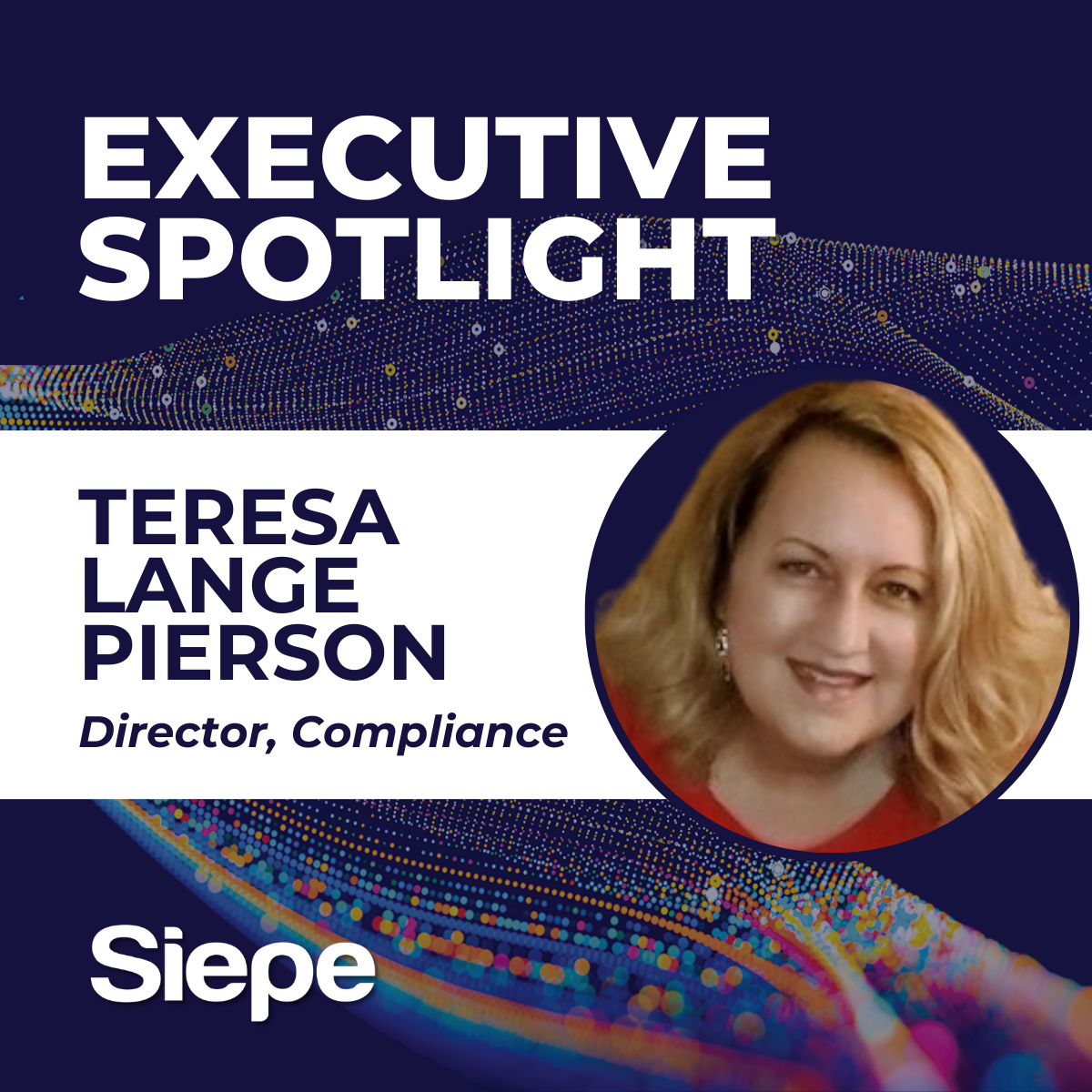How has the private credit industry evolved in the past decade? What challenges do fund managers face when performing compliance testing for Collateralized Loan Obligations (CLOs)? Teresa Lange Pierson, our newly appointed Director of Compliance, explores this and more during our latest Executive Spotlight.
As Siepe’s Director of Compliance, can you tell us a bit more about your role?
With the rollout of Siepe’s Collateral Administration, Collateral Agent and Middle-Office Services, my role is to handle the direction of our product development to ensure that our clients meet their regulatory obligations across the funds and portfolios they manage.
For example, if we look at Collateralized Loan Obligations (CLOs), each will have covenants that require regular compliance testing to assess the risk within a fund manager’s portfolio. We want to make these processes as seamless and streamlined as possible, so that fund managers can make strategic business and investment decisions quickly without the fear of falling short on their regulatory requirements.
With over 30 years of experience as a financial executive, what attracted you to the banking and CLO space?
When I started working in the industry, I was at JP Morgan in the retirement space but after they exited, I had the opportunity to move into the CLO world in an Analyst role. This was very similar to my previous position of what I was doing on the technical and financial side. So, instead of looking at retirement and pension funds, I was now working across credit and CLO structures, using those skills to come up with solutions that help improve efficiency and reduce risks of trading in lower-quality credits.
How has the Credit and CLO landscape changed over time, and what are the reasons behind this?
The industry has changed quite a bit over the past decade, with a drive towards more transparency into the data of CLOs and underlying debt. A key reason for this is that fund managers need to be able to understand and receive their data immediately to make informed investment decisions and navigate evolving market conditions. At the same time, the size of the private credit market has swelled since the pandemic from $875 billion in 2020 to $1.5 trillion in 2023. This has only added to the challenge of data transparency as now fund managers need to be able to aggregate and centralize their data from even more sources.
From a regulatory perspective, we’ve also seen major changes that have overhauled the way in which fund managers carry out their compliance processes in their credit and CLO portfolios. For example, before the market crash in 2007/2008, there was a lot less underlying visibility in compliance test results of CLOs and credit assets.
Since then, regulators have brought in more controls for collateral managers to reflect those test results in their transaction reporting of those assets. In Europe, ESMA introduced SFTR reporting in 2020, which requires issuers to report and submit collateral data to the regulator and for this data to be available to all investors. While this may seem trivial to us in the States, US fund managers who have ties to European deals are also required to fulfill these obligations and, therefore, need to have in place the compliance processes to do so.
What’s a key differentiator of Siepe in the CLO industry, and why do you think this is?
I think it’s the experience we have from the buy-side and our ability to really understand the pain points of our customers, as many of us at Siepe have experienced the same issues, having worked in their shoes at some point in the past. And being a fintech company focused on software, we’ve carved out a unique position to solve these challenges across all office functions, front-to-back, enabling clients to derive greater insights from their data while supporting their operational compliance needs.
What is a fun fact about yourself?
I’m a Houston Rodeo volunteer – the largest rodeo globally – which is completely run by volunteers and is a charity to fund scholarships for Texas Youth. Since the Rodeo started in 1932, over $600 million has been committed to the youth of Texas and education, with more than 800 scholarships awarded to students each year.

